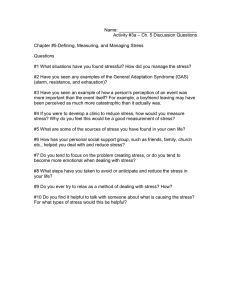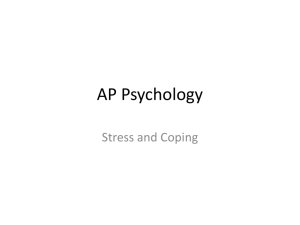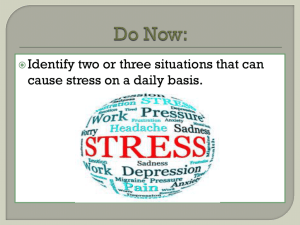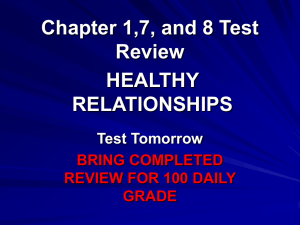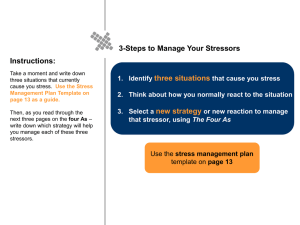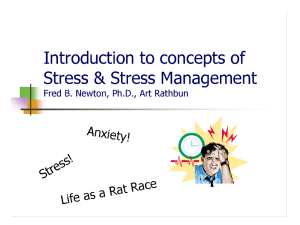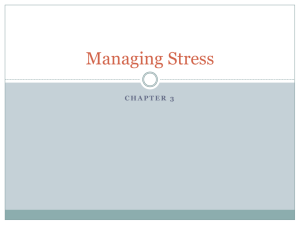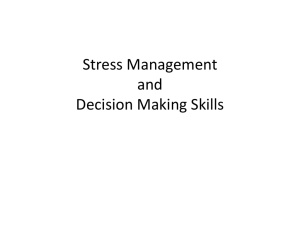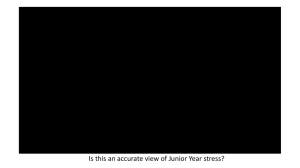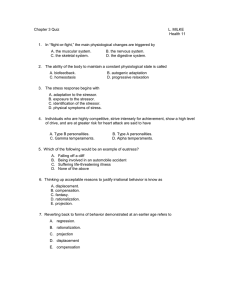Stress
advertisement
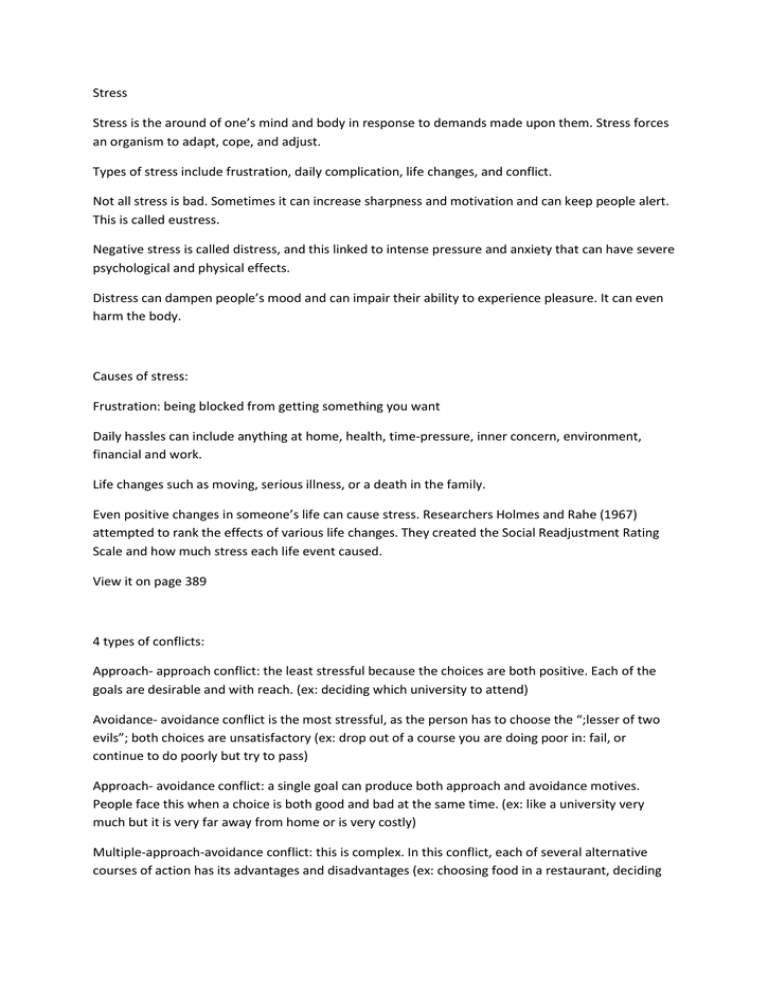
Stress Stress is the around of one’s mind and body in response to demands made upon them. Stress forces an organism to adapt, cope, and adjust. Types of stress include frustration, daily complication, life changes, and conflict. Not all stress is bad. Sometimes it can increase sharpness and motivation and can keep people alert. This is called eustress. Negative stress is called distress, and this linked to intense pressure and anxiety that can have severe psychological and physical effects. Distress can dampen people’s mood and can impair their ability to experience pleasure. It can even harm the body. Causes of stress: Frustration: being blocked from getting something you want Daily hassles can include anything at home, health, time-pressure, inner concern, environment, financial and work. Life changes such as moving, serious illness, or a death in the family. Even positive changes in someone’s life can cause stress. Researchers Holmes and Rahe (1967) attempted to rank the effects of various life changes. They created the Social Readjustment Rating Scale and how much stress each life event caused. View it on page 389 4 types of conflicts: Approach- approach conflict: the least stressful because the choices are both positive. Each of the goals are desirable and with reach. (ex: deciding which university to attend) Avoidance- avoidance conflict is the most stressful, as the person has to choose the “;lesser of two evils”; both choices are unsatisfactory (ex: drop out of a course you are doing poor in: fail, or continue to do poorly but try to pass) Approach- avoidance conflict: a single goal can produce both approach and avoidance motives. People face this when a choice is both good and bad at the same time. (ex: like a university very much but it is very far away from home or is very costly) Multiple-approach-avoidance conflict: this is complex. In this conflict, each of several alternative courses of action has its advantages and disadvantages (ex: choosing food in a restaurant, deciding between food that is health but not tasty, tasty but not healthy, food healthy and tasty but expensive…) Dealing with stress: Use humor Be self-confident and encourage yourself Learn to predict when you are likely to feel stress and prepare yourself Find a social support: talk about issues with people you trust, do physical things like sports, get advice from friends, just be around people who are relaxed. Two types of stress personalities: Type A people are always on the go, they put pressure on themselves and thus constantly feel stress. They never seem to have enough time, especially since they often try to do several things at once. They walk, eat, talk faster than others, and try to do many things at once. Type B people are more relaxed. They are more patient, do not become angry as easily, and are less driven. These people usually experience less stress, but perhaps less success as well. General adaption syndrome: Different stressful situation produce similar responses in the body. Selye said there are three stages to experiencing stress: alarm reaction, resistance, and exhaustion. The alarm reaction: fight or flight reaction when experiencing something stressful. The resistance stage: if the alarm reaction mobilizes the body and the stressor is not removed, people attempt to find a way to cope with the stressor to avoid being overwhelmed. The exhaustion stage: if stressor is still present, the person becomes very tired. People’s muscles become warn out and heart and breathing slows down. Continued stress during this stage can cause health problems. Consequences of prolonged stress: The immune system becomes less efficient and the person becomes prone to illness. The person may experience headaches. Some experience the more severe headache called a migraine. Heart disease and cancer are two very serious illnesses that one is at a greatest risk of catching if they experience high stress continuously. Defense coping: Negative/ unhealthy ways that some people deal with stress include: Substance abuse (drugs and alcohol to numb or relax the body- but many become dependent which leads to greater problems) Aggression (but this usually causes more stress rather than fixing it) Withdrawal (loss of interest in life- completely ignore and turn away from problems) Suicide (extreme withdrawal)
